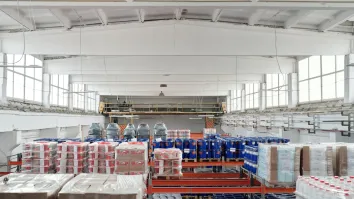
How will hybrid working impact office building management?
Operational efficiency is now more important than ever.
The uncertainties caused by the pandemic have given rise to operational issues in terms of property management, such as service availability from the organisation management, as well as from third-party service providers; the dynamics of tenant financial conditions; owners who face challenges that also have an impact on financial performance; and trends related to needs that may shift or change due to current developments in the market.
Christina Ng, Head of Facilities Management Colliers Indonesia, said that for some time companies have implemented the work-from-home (WFH) system, while still offering work-from-office (WFO) on a voluntary basis. Now, companies have started to implement a Return-to-Office (RTO) system, whereby there is an obligation for employees to return to work at the office − but with certain rules that apply. Therefore, the concept of Hybrid Working is being widely applied by various companies.
Hybrid working will be here to stay for several years, and this will certainly have lasting impacts on building management.
Here’s more from Colliers:
The Effects
With a hybrid system, the need for office space will be reduced, which will also see a reduction in energy consumption and other expenses. Efficiencies as a result of this can be reallocated to improve quality in other things while increasing employee engagement.
Meanwhile, for the building, the impact will lie in the use of its utilities, which should be expected to adjust to increases and decreases in accordance with the occupancy load in order to achieve operational efficiency. The reduction in office space requirements will affect energy consumption in buildings, and more problems are likely to be experienced with the use of Heating Ventilation and Air Conditioner (HVAC) systems.
The importance of predictability
What can be anticipated from both the corporate and the office building management in a hybrid work system? For corporations, the Facilities Management team must be able to predict what might be used or needed as a reference or solution. It is important for Facilities Management practitioners to continue to analyse the optimal space and technology requirements needed now and in the future, especially as such requirements are intended to optimise employee performance.
Meanwhile, for buildings adapting to hybrid-system changes and in competitive conditions, operational efficiency will be very important. With a work method that allows for a more accurate prediction of building loads, efficiencies are enabled − especially in energy use − that can have a positive impact on service performance and management finances.
What to anticipate in workplace and building operations
In general, the Facilities Management division must be adaptive in responding to existing dynamics including, ensuring that every protocol carried out is in line with the latest government regulations and implementing technology to support the creation of good workplace standards, not only for employees who work from the office, but also for employees who work from home.
For Building Management, by using a combination of applications involving better trained and up-to-date resources, it is also important to implement a technology system, both gradually and comprehensively, to provide effective solutions to property performance in terms of cost management. However, it is also important to focus on the wellness aspect in addition to energy/sustainability. Therefore, properties that offer better solutions will have more opportunities and a competitive edge in the market.
Download the full version of the Market Insights report here.

















 Advertise
Advertise





